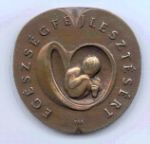5. Saga (HU, AT, PT)
Introduction
Sagas, folk tales all over the world are part of the particular national oral history that we acquire from birth time and pass it over to the next generation unconsciously. Using these narratives for pedagogical purposes in primary school need no justification. However, we are always surprised at universal similarities of these sagas reading the collection of international narratives.
From methodological point of views using these narratives for developing communication skills is well known for most of the primary schools teachers. What we less often mention is that these sagas and folk tales to serve as best means to develop civic values and to raise awareness to social, ethnic and gender differences.
Finally these literary texts can help students to develop their imagination and help them to create universal values like solidarity and to mend cultural divisions. To serve this purpose we have compiled with the help of Hungarian, Austrian and Portuguese educational professionals a collection of sagas. Our main aspect was practical applicability during everyday educational work.
The collected texts are useful in processing topics like multicultural issues, communication skills development and creativity development among others.
CONTENTS
Conceptual umbrella
Preface
1. László Lajos Lippai: Introduction to the theory of saga analysis
2. Marianna Joó: The role of sagas in forming civic values in lower primary age
2.1. Introduction
2.2. Hungarian folk-tales
3. Renate Seebauer: Traditional Austrian Tales and Legends– Terms, Categorizing, Using Folktales in the Classroom and Selected Examples of their Representation of “Women“, “Different Nationalities “ and “Minorities“
3. Maria Luísa Sarmento de Matos: Tales
3.1. General methodology
3.2. Collection of Portuguese saga
Authors
Joó Marianna, Lecturer. Department of Education, University of Szeged, Faculty of Juhász Gyula Teachers’ Training College. Sub-coordinator of Saga module.
Lippai László Lajos, Assistant professor, Psychologist, Department of Applied Health Sciences, University of Szeged, Faculty of Juhász Gyula Teachers’ Training College. Sub-coordinator of Communication skills development module.
Drª. Maria Luísa Sarmento de Matos, Teacher, Portuguese Language Area, Department of Basic Education Instituto Politécnico de Lisboa, Escola Superior de Educação, Sagas área responsable.
Prof. Dr. hab. et Mag. Renate Seebauer, Department of Educational Psychology; State College of Education Vienna; Accred. Lecturer in Education (University of Derby, UK). TEMPUS-Office; Coordinator of ERASMUS and COMENIUS Projects.
